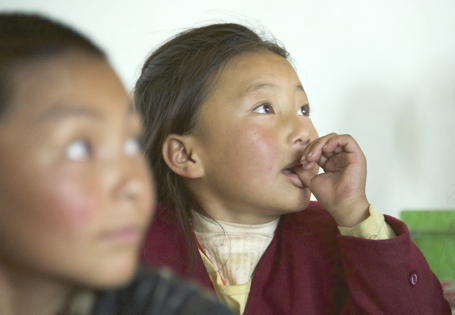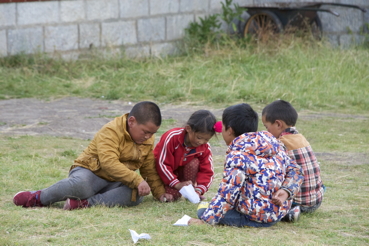 ZANGDOK PALRI ACTUALITES
ZANGDOK PALRI ACTUALITESSambhota Primary School – Orphanage
No 31 – September 2017

Dear sponsors and donors,
This newsletter is a bit out of the ordinary, as it needs to inform you of some unexpected difficulties the school-orphanage faces today.
In the 15 years of the school’s existence, we have enjoyed a trusting relationship with its administrator. Today, he and his family are confronted with a degree of animosity that makes it impossible for him to continue running the school, and impossible for us to guarantee the students’ safety. We are very sad to report that we have had to close the school-orphanage for the time being to allow the situation to return to normal.
We have been able to ensure that all the children have either returned to their families or have been accommodated by relatives. We are of course ready to lend a hand whenever needed.
We ask you, therefore, to no longer make any donations. We will be sure to let you know as soon as we can resume our activities.
These temporary obstacles obviously do not call into question the raison d’être of our association and do not prevent us from continuing our support for the Zangdok Palri Institute.
We are immensely grateful to you for reading, supporting and encouraging us these many years. This project has only been possible thanks to you!
On behalf of the Dzogchen children, thank you.
the Zangdok Palri team
Dzogchen valley children’s travel notes
Child’s play
Once again we are happy to share with you some impressions from the daily life of Dzogchen’s school children, as witnessed and documented by Clotilde during her 2016 trip to Tibet…
After lunch break, the children play with their teachers, mostly in group games. They very often form big circles to dance and sing together. Dancing and singing are very common in Tibet, as they once were in our countrysides as well.
Even without television, however, a very un-indigenous sport has made its way into Tibet, perhaps via the Internet: football! High-energy matches mixing up all sizes and ages are quite frequent.
During our visit, we were able to witness some memorable and very giggly games indeed.

We were quite surprised to find that the teams changed all the time, depending on new players coming in and others leaving without warning… No discussions, no fixed memberships, only a shared sense of what it takes to form equally matched teams and have a good time. As a result, it was quite common to see a player switch sides in the thick of it and find yourself faced with an adversary who only a few minutes ago was still a trusty member of your own team!
In such a wild and unruly game, the very youngest children usually had a hard time getting to the ball, but this seemed not to upset them at all. Some simply continued running after the ball, others went off and did something else without any apparent frustration…
In Tibetan pedagogy, failure is part of the learning process. What’s more, failures are regarded as accurate indications of a child’s level and learning needs (for example, learning to wait patiently to become one of the big kids!). In the West, we would tend to let the smallest children have the ball once in a while in order to ‘include’ them. Not so in Tibet. Reality is allowed to play out here, without pity or seeking to change the natural course of things. If a child is sad, it is not scolded or sermoned. Rather, it is offered a way to change its mind. Whenever there’s a sad child on the sidelines keeping to itself, someone might produce a little foam ball from their pocket. Presented with a solution, the child is invited to change its disposition by itself.
As a rule, Tibetans teach through example and experience rather than top-down instruction. Life lessons are mostly left for later, more collective contexts, where each is invited to draw from the situation what he or she is ready for at the time.
But make no mistake: a child whose behaviour goes against the common good can be corrected quite sternly. Respect for others is not to be trifled with!
A heartfelt thank you to
- the Comité d’Actions sans Frontières of Luxemburg’s European Schools for generously sponsoring the purchase of students’ clothes;
- and of course all our donors and sponsors who have kept this project alive for so many years!